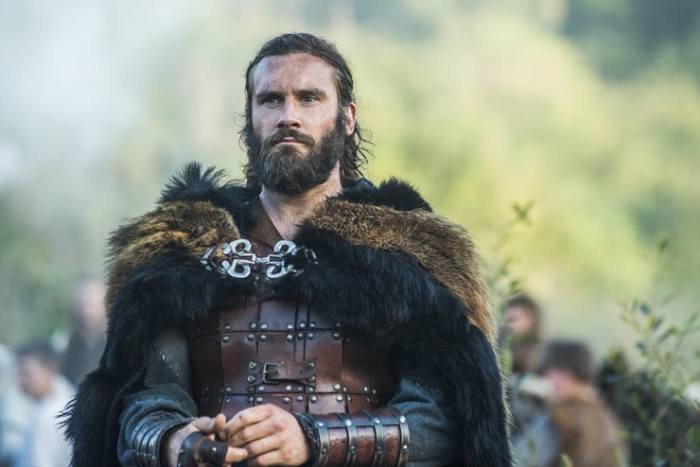The first duke of Normandy crossword is a challenging and educational puzzle that tests your knowledge of the history of Normandy and its first duke, Rollo. The puzzle is designed to be both enjoyable and informative, and it can be a great way to learn more about this fascinating period in history.
The puzzle consists of a grid of squares, each of which contains a letter. The goal of the puzzle is to fill in the grid with the correct letters to form words and phrases related to the first duke of Normandy.
The puzzle includes a variety of clues, including definitions, synonyms, and anagrams, to help you solve it.
Historical Context: First Duke Of Normandy Crossword

The Duchy of Normandy, a historical region in northwestern France, emerged in the 10th century. Its founding was the result of a strategic alliance between the Viking leader Rollo and the French king Charles the Simple. Rollo, a formidable warrior, had led his Viking raiders to conquer lands along the Seine River.
In 911, Charles the Simple, seeking to pacify the region and secure his borders, granted Rollo the lands between the Seine and the Atlantic Ocean, thus establishing the Duchy of Normandy.
The first Duke of Normandy, Rollo, played a pivotal role in shaping the duchy’s development. He established a strong and centralized government, bringing stability to the region. Rollo also implemented a system of feudalism, dividing the land among his loyal followers and creating a network of alliances and obligations.
These measures laid the foundation for the duchy’s future prosperity and influence.
Rollo’s Legacy
- Established a strong and centralized government, bringing stability to the region.
- Implemented a system of feudalism, dividing the land among his loyal followers and creating a network of alliances and obligations.
- Laid the foundation for the duchy’s future prosperity and influence.
Rollo, the First Duke of Normandy

Rollo, the first Duke of Normandy, was a legendary Viking leader who played a pivotal role in the history of Normandy and the formation of the Norman state. Born in Norway around 846 AD, Rollo embarked on a life of Viking raids and conquests, establishing a reputation as a fierce and skilled warrior.
Viking Origins and Conquest of Normandy
In the late 9th century, Rollo and his band of Vikings launched a series of raids on the coast of northern France. In 911 AD, King Charles the Simple of France granted Rollo the territory of Normandy as a fief in exchange for his loyalty and protection against further Viking attacks.
Rollo accepted the offer and became the first Duke of Normandy, establishing a Viking kingdom that would eventually become an independent duchy.
Establishment of the Duchy of Normandy
As Duke of Normandy, Rollo set about consolidating his power and establishing a stable government. He adopted Christianity, married the daughter of a local count, and implemented a system of feudalism based on the Viking tradition of loyalty and military service.
Rollo’s reforms laid the foundation for the development of a strong and prosperous Norman state.
Securing Independence
Rollo’s reign was marked by constant warfare and diplomatic negotiations as he sought to secure the independence of Normandy from both the French crown and rival Viking factions. Through a combination of military prowess and political maneuvering, Rollo managed to maintain Normandy’s autonomy and establish it as a powerful and respected duchy in the emerging feudal landscape of Europe.
Legacy of the First Duke of Normandy

Rollo’s rule had a profound impact on the development of Normandy. His establishment of a strong centralized government and the introduction of feudalism laid the foundation for a stable and prosperous duchy. Rollo’s policies also fostered a sense of Norman identity and unity, which would play a significant role in the duchy’s future.
Political Changes
One of the most important political changes introduced by Rollo was the establishment of a centralized government. Prior to his arrival, Normandy was a patchwork of small, independent fiefdoms. Rollo unified these fiefdoms under his rule and established a strong central authority.
Rollo also introduced feudalism to Normandy. Under this system, land was granted to nobles in exchange for military service. This system helped to create a loyal and powerful class of nobles who supported Rollo’s rule.
Social Changes
Rollo’s rule also brought about a number of social changes. He encouraged the settlement of Normans in the duchy, which led to a significant increase in the population. Rollo also promoted the development of towns and trade, which helped to create a more prosperous economy.
Rollo’s policies also had a significant impact on the social structure of Normandy. He established a hierarchy of social classes, with the nobles at the top and the serfs at the bottom. This social hierarchy would remain in place for centuries to come.
Cultural Changes
Rollo’s rule also had a profound impact on the culture of Normandy. He introduced the Norman language, which is still spoken in the region today. Rollo also encouraged the development of Norman art and architecture, which would later have a significant influence on the development of Gothic architecture.
Rollo’s Legacy
Rollo’s legacy was far-reaching. He established a strong and stable duchy that would play a significant role in European history. Rollo’s policies also fostered a sense of Norman identity and unity, which would continue to shape the duchy’s future. Rollo’s legacy can still be seen today in the culture, language, and institutions of Normandy.
Archaeological Evidence

Archaeological discoveries play a crucial role in shedding light on the reign of Rollo and the early Duchy of Normandy. Excavations and surveys have uncovered a wealth of artifacts and structural remains that provide valuable insights into the Viking presence, settlement patterns, and socio-economic conditions during this period.
Viking Artifacts
- Numerous Viking weapons, such as swords, axes, and arrowheads, have been found in Normandy, indicating the military prowess and martial culture of the Viking settlers.
- Jewelry and personal adornments, including brooches, pendants, and rings, reveal the artistic skills and cultural influences of the Vikings.
- Coins minted in Normandy during Rollo’s reign bear Viking symbols and inscriptions, providing evidence of the establishment of a stable and organized political entity.
Fortifications
The construction of fortifications, such as earthworks and mottes, demonstrates the strategic importance of Normandy as a Viking stronghold and a base for further raids and conquests.
- The remains of a Viking longhouse in Rouen, the capital of Normandy, suggest the establishment of a permanent settlement and the assimilation of Viking customs into the local population.
- Excavations at various sites have uncovered evidence of Viking shipbuilding and maritime activities, highlighting the importance of naval power in Viking expansion and trade.
Archaeological evidence thus provides tangible proof of the Viking presence in Normandy and offers insights into the political, social, and economic dynamics of the early Duchy under Rollo’s leadership.
Cultural Impact

The reign of Rollo and the establishment of the Duchy of Normandy had a profound cultural impact on the region and beyond.The Vikings brought with them their own unique culture, which blended with the existing Gallo-Roman culture of the region.
This resulted in a distinctive Norman culture that was characterized by its maritime prowess, its military strength, and its architectural innovations.
Influence of Viking Culture on Norman Society and Art
The Vikings had a significant influence on Norman society and art. Their maritime skills and shipbuilding techniques enabled them to become a powerful naval force, which they used to raid and conquer territories throughout Europe. Their military prowess was also evident in their use of cavalry and infantry tactics, which they employed to great effect in their conquests.The
Vikings also brought with them their own artistic traditions, which influenced Norman art. Viking art was characterized by its use of intricate carvings, metalwork, and jewelry. These motifs can be seen in many Norman churches and castles, as well as in the Bayeux Tapestry, which depicts the Norman conquest of England in 1066.
The Duchy of Normandy as a Center of Learning and Culture in Medieval Europe, First duke of normandy crossword
Under the rule of the dukes of Normandy, the Duchy of Normandy became a center of learning and culture in medieval Europe. The dukes founded several monasteries and schools, which attracted scholars and students from all over Europe. The duchy was also home to a number of important libraries, which contained a wealth of knowledge on a variety of subjects.The
cultural achievements of the Duchy of Normandy had a lasting impact on European civilization. The dukes of Normandy were patrons of the arts and sciences, and they helped to create an environment in which learning and culture could flourish. The duchy was also a major center of pilgrimage, and its churches and monasteries attracted visitors from all over Europe.
Quick FAQs
Who was the first duke of Normandy?
Rollo
When did Rollo become the first duke of Normandy?
911
What was the capital of the Duchy of Normandy?
Rouen

